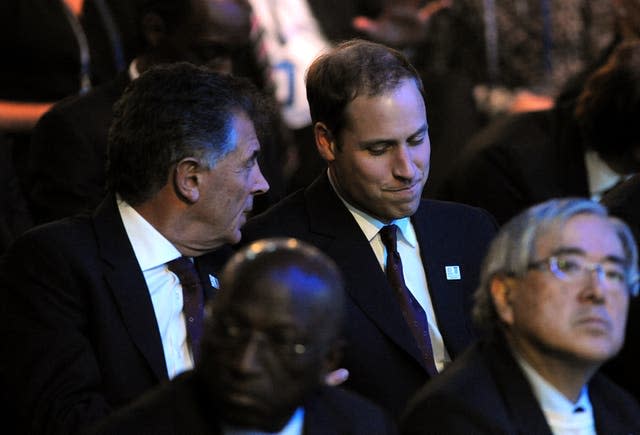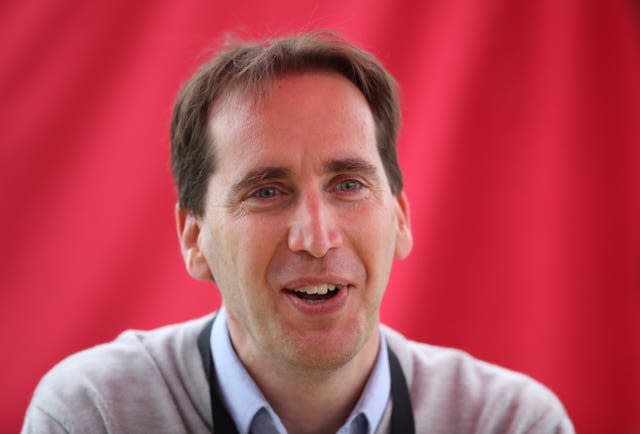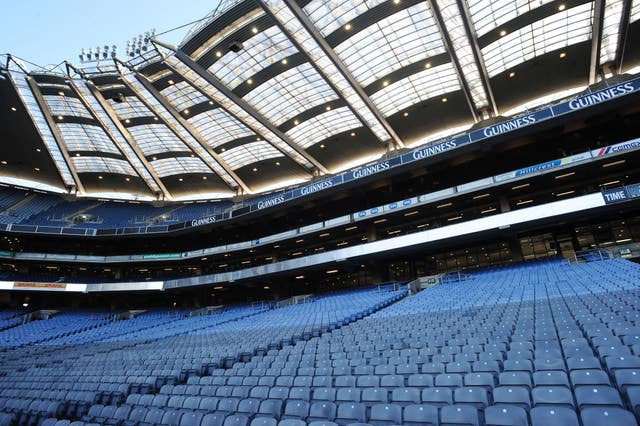UK and Ireland focused on Euro 2028 bid due to 2030 World Cup ‘uncertainty’
The football associations of the UK and Ireland have switched focus to hosting Euro 2028 after identifying “many areas of uncertainty” around a bid for the 2030 World Cup.
The five governing bodies confirmed on Monday morning that they would throw their hat in the ring for the continental finals, rather than the centenary edition of the World Cup.
Football Association chief executive Mark Bullingham said both tournaments offered a similar return on investment, but added: “When you look at it for the Euros, we’ve got a very clear bidding landscape and bidding timeline and, when we assess everything for that, we know we can put together a highly-competitive bid.
Following an extensive feasibility study, we can confirm we have agreed to focus on a bid to host UEFA EURO 2028 along with the @IrishFA, @ScottishFA, @FAWales and @FAIreland.
Find out more here:
— The FA (@FA) February 7, 2022
“I think with the World Cup, there are many areas of uncertainty, in terms of the timeline, in terms of the frequency of the events and so on.”
Euro 2028 would clash with the first biennial World Cup based on the reform plans put forward by the game’s world governing body FIFA, which remain the subject of consultation.
Asked about that potential clash, Bullingham said: “All of the potential changes that FIFA have been proposing or doing a feasibility study on are still up in the air.
“I think we’ve been very clear – we didn’t think biennial World Cups either in men’s or women’s (football) were a good idea and we don’t believe that they will come to fruition.”
Bullingham said the decision to focus on Euro 2028 was not based on any communication from UEFA that it would support a joint Spain-Portugal bid for 2030 over the UK-Ireland bid.
Some critics of any 2030 bid cited the failed solo efforts of England to host the 2006 and 2018 tournaments, and the lack of transparency around FIFA decision-making as a reason not to go for the World Cup again.

However, the voting process for the finals now sits with FIFA’s 211-member Congress rather than with the much smaller executive committee, which faced allegations of corruption over its handling of the awards for the 2018 and 2022 finals back in 2010. The decision to award the 2026 finals to the United States, Canada and Mexico was taken by the Congress, with details of the vote published online.
Russia and Turkey are also reportedly in the running for Euro 2028, when it is expected 32 teams will compete instead of the current 24.
UEFA is running the bidding process for the 2028 and 2032 Euros in parallel, with expressions of interests from associations required by March 23. Final bid dossiers must be submitted by April 12, and UEFA plans to announce the 2028 and 2032 hosts in September next year.
Bullingham believes the five-nation Euro bid would be viewed favourably, as UEFA seeks to rebuild its finances following the Covid-19 pandemic.
“We believe we can put together an incredibly strong tournament in many ways,” he said.
“And we also know we can deliver a really strong commercial return to UEFA and we feel that puts us in a strong position.”

The association chief executives said precise details on which venues would be submitted for the bid were still to be decided, with the decision on how many finalists were involved key to making that call.
The associations say they will also discuss with UEFA how many automatic host qualification places there would be in either a 24 or 32-team finals.
Bullingham said he could “see no reason why” the British Government would not be equally as supportive of a Euros bid as they had been for a World Cup effort.
He also did not believe it would have any impact on a promised £550million investment in the grassroots game.
He said: “They have committed the first four years of that money anyway. Our hope and expectation is that all of the £550m does get delivered, and hopefully as part of a successful Euros bid as well.”
A UK Government statement said: “Following a full feasibility study, and in light of the current uncertainty around the future format of the tournament, we accept the conclusion of the five football associations that now is not the moment to proceed with a (World Cup) bid.
“We remain passionate about bringing a World Cup to the UK and Ireland when the time is right.
“Meanwhile, the UEFA European Championships are one of the biggest global sporting events. Hosting the full tournament would be an exciting opportunity, bringing significant benefits to the whole of the UK and Ireland. That is why we have initiated work to explore the possibility of bidding to host Euro 2028.
“We are looking closely at the outcome of this work and, subject to further discussions, hope to be able to confirm Government support for a bid in the coming weeks.”
Jonathan Hill, the chief executive of the Football Association of Ireland, said both the Aviva Stadium and Croke Park in Dublin were in its thinking as potential host venues, and that discussions had already been held with the Gaelic Athletic Association over the latter stadium.

Patrick Nelson, the chief executive of the Irish Football Association, said Northern Ireland was “not along for the ride” and wanted to host matches rather than just training camps. He would not rule either Windsor Park or a redeveloped Casement Park in or out of the running at this stage.
Scottish Football Association chief executive Ian Maxwell said his organisation would need to look at what hosting Euro 2028 could bring in terms of the redevelopment of Hampden Park.
Noel Mooney, the chief executive of the Football Association of Wales, expected the Principality Stadium would play a key part in any tournament plan and added: “We know from the feasibility study that we’ve got a great chance of winning this (bid). We are really confident going into this that this will be clearly the best bid out there.”
Julian Knight, the Conservative MP who chairs the Digital, Culture, Media and Sport (DCMS) Committee, welcomed the switch in focus but added: “It’s unacceptable that £2.8m in taxpayer money was wasted on a pipe dream that was clearly doomed from the start.
“Football in the UK needs to sort out its reputation at home before we can go after the biggest tournament.”


